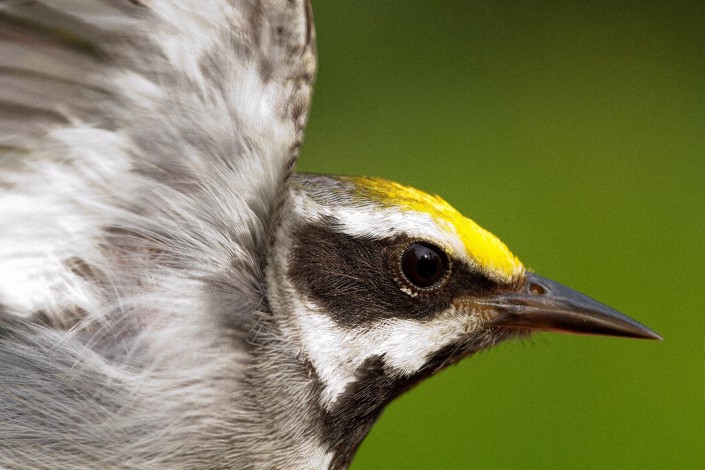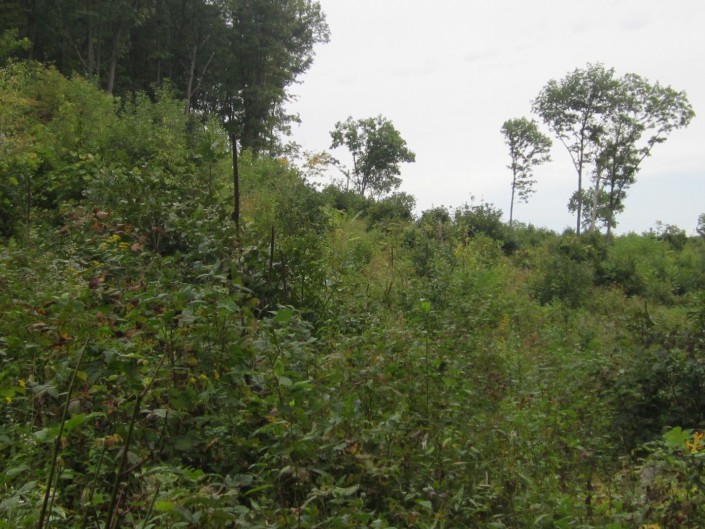CWF Headed to Honduras to Study Golden-winged Warbler
CWF biologist Kelly Triece to visit Honduras to observe Golden-winged Warblers in their Wintering Habitat
by Kelly Triece, Private Lands Biologist

CWF is headed down to Central America to see one of New Jersey’s native songbirds! This time of year the Golden-winged Warbler (GWWA) is in Central and South America. The GWWA is Neotropical Migrant songbird that breeds in New Jersey, but migrates south for the winter. This songbird is a species of special conservation concern in the U.S. and endangered in New Jersey, experiencing population declines due to loss of young forest habitat.
Conserve Wildlife Foundation biologist Kelly Triece will be traveling to Honduras next week to observe the GWWA in its wintering habitat. While she is there, she will be learning more about the wintering habitat requirements of the Golden-winged Warbler as well as the current threats and challenges facing the species in this part of the world.

The management of early successional habitat, or young forest habitat, is important in New Jersey because it provides breeding habitat and post-fledging habitat for the Golden-winged Warbler. In the past 30 years, over 11,000 acres of upland shrub and emergent wetland habitat have been lost to succession in New Jersey.
Today, 80% of New Jersey forests are between 60-99 years old, while only 5% of the forests are between 0-19 years old. In a naturally occurring system, where fire, wind, flooding and other disturbances are not controlled by humans, this age class would be more evenly distributed. Through management and proper forestry techniques, more diversity can be created to balance the age of the forest.
The Golden-winged Warbler is not the only scrub-shrub dependent bird species considered to be at-risk. About 85% of shrub obligate birds and 35% of forest birds are on the decline in North America. Some of the declining species are Prairie Warbler, Field Sparrow, Northern Bobwhite and American Woodcock. Additionally, woodland breeding birds are also at risk because many rely on young forest habitat for post-fledging. Therefore, the management of young forest habitat is not only specific to the Golden-winged Warbler, it is also important for many other avian species. Furthermore, other wildlife such as insects, reptiles and mammals will benefit from increased flowering plants and foraging habitat.
CWF and our partners — Natural Resources Conservation Service, New Jersey Division of Fish and Wildlife and New Jersey Audubon Society — have worked with private landowners to create or restore over 225 acres of Golden-winged Warbler habitat since 2012 in New Jersey. Our managed forests have a statistically significant higher diversity of birds than unmanaged sites!
Stay tuned for Photos from the Field next week as Kelly travels to Central America!
Learn More:
Kelly Triece is the Private Lands Biologist for Conserve Wildlife Foundation of New Jersey.
Discover more from Conserve Wildlife Foundation of NJ
Subscribe to get the latest posts sent to your email.